In today’s world, ideas for a business are no longer limited to only a few traditional options like clothes, general stores, etc. People have utilized technology to introduce various products and services in the market.
One underrated business in the modern world is a salad bar business. But the future of opening a salad startup is bright and promising. People have become more health-conscious. They have realized the importance of having healthy foods in their diet to boost their immunity.
Infections like COVID-19 have also given rise to these businesses. However, there are many things to understand and evaluate before starting your own salad business. The following guide gives a comprehensive analysis of different things to know how to start a salad business in any country or place.
Do Your Research
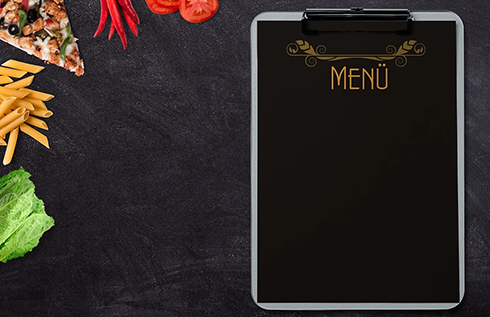
Research plays an integral role in carrying out a business successfully. It acts as a base for the building that strengthens over the years. The research process becomes more crucial when it comes to the salad business as it is a developing sector or field. It involves scrutinizing various factors and components listed below.
Decide Your Menu
Since salad is a food item served by various restaurants as a side food. As a result, the competitors are significantly high in this industry. Apart from these restaurants and fast-food giants, specialized and dedicated salad bars will also be your direct competitors.
This factor gives added importance to the menu of the salad startup. Understanding the positioning of the business is essential in determining the menu items and their prices. Innovativeness in the food items is a critical feature to consider while designing the food menu.
Even if your business wants to sell fewer salads, you are free to do so, given that these limited options are unique compared to the competitors. Another element in the salad menu is deciding whether the business is prioritizing health, taste, or both.
If you are going for a completely healthy product with average taste, you will have to locate yourselves in a strong location. There are other variants like plant-based and fiber-rich salad options that can lead to the appropriate menu decision.
When you’re deciding on your menu, consider the burgeoning trend of a “build your own salad” concept. This allows customers to create their personalized meals from a wide array of fresh ingredients. This level of customization not only enhances customer satisfaction but also helps your “make your own salad restaurant” stand out.
| Salad Concept | Core Features | Target Audience | Typical Ingredients |
| Health-Focused | Low-calorie, high-nutrient, functional ingredients | Fitness enthusiasts, health-conscious individuals | Quinoa, avocado, spinach, grilled chicken breast |
| Build-Your-Own | High customization, wide variety options | Personalized meal seekers, diverse tastes | Assorted greens, proteins, toppings, dressings |
| Plant-Based | 100% vegan, environmentally friendly | Vegetarians, vegans, eco-conscious consumers | Tofu, chickpeas, abundant vegetables, vegan dressings |
| Global Flavors | Blends international cuisines, unique tastes | Adventurous eaters, culturally curious individuals | Thai papaya salad, Mexican corn & bean, Mediterranean elements |
Location
Placing the salad shop or bar in a suitable location will enhance the overall profitability of the business. Due to its irregularity, a salad bar located in an inaccessible or deserted place will face extreme losses both in the short-term and long-term.
An ideal location for this business is where there are plenty of raw material suppliers nearby selling essential vegetables and ingredients at reasonable prices. Apart from this, the location of the business will depend on the business model (independent or franchise).
Demand also plays a crucial role in deciding the location of a business. Your startup’s location should have demand for the salads, provided that there are not many competitors addressing the same demand.
The setup could be in a residential locality, educational area, downtown location, industrial region, etc. Rent is also a significant factor that directs the location. If the cost of setting up in an area or the rent is high, it will limit the options for establishing the bar.
Independent Or Franchise
Many people get confused while selecting an appropriate business model for their salad bar. It depends on you whether you want to opt for an independent salad bar or restaurant or set up your salad store under a franchise.
You should set up the business under a franchise based on the target audience. On the other hand, the independent mode is recommended when you require complete control and authority over the operations of the business.
Contrary, the franchise model has numerous benefits like having an already established brand name, reputation, marketing, contacts, etc. You should outline your business needs and decide which model will suit them the most.
Pricing
While setting up the menu of the restaurant, price-setting is the most influential factor. The pricing model will help you determine your profitability and the attractiveness of the business to the people. The prices will also depend on the decision whether the business is providing custom packaging services like custom paper bags or not.
If the prices are set low, you should ensure that your chefs do not compromise on the quality of the salads. On the other hand, if the salads are priced high, the business should be located where people can afford the salad. Furthermore, high-priced salads should offer an excellent taste to sustain the competition and gain market share.
The price is generally decided on the basis of the initial investments in recruitment, machines, equipment, rent, licenses, and other costs incurred like administrative costs, etc. Experts recommend starting a salad bar with a low-pricing model and gradually increase the prices depending on the customer’s feedback.
Financial Planning: Budgeting for Your Salad Business
Understanding the capital required to launch and operate your salad business is crucial. While the exact figures will vary based on your location, scale, and business model, the following breakdown will help you estimate your initial investment and ongoing expenses.
Estimated One-Time Startup Costs Table
This table outlines the typical one-time expenses you’ll incur before opening your doors.
| Item | Estimated Cost Range (USD) | Notes |
|---|---|---|
| Business Registration & Licensing | $500 – $2,000 | Includes business license, food service license, health permits, etc. |
| Lease Security Deposit | $3,000 – $15,000 | Typically equivalent to 1-3 months of rent. |
| Renovation & Design | $10,000 – $50,000+ | Covers kitchen modifications, dining area setup, signage, and decor. |
| Kitchen Equipment | $15,000 – $40,000 | Refrigerators, salad prep tables, refrigerated display cases, POS system, blenders. |
| Tableware & Take-out Packaging | $2,000 – $5,000 | Bowls, cutlery, glasses, eco-friendly to-go containers, custom paper bags. |
| Initial Food Inventory | $3,000 – $7,000 | Your first stock of fresh produce, proteins, dressings, and dry goods. |
| Marketing & Grand Opening | $1,000 – $5,000 | Website development, social media ads, flyers, and launch day promotions. |
| Estimated Total | $34,500 – $124,000+ |
Recurring Monthly Operating Costs
After you launch, you will need to budget for these regular expenses:
- Rent: This is often your largest fixed cost and is location-dependent.
- Staff Salaries & Wages: Payroll for your chefs, servers, and cleaning staff.
- Cost of Goods Sold (COGS): The cost of ingredients. This will be your largest variable expense.
- Utilities: Water, electricity, gas, and internet services.
- Marketing & Advertising: Ongoing social media campaigns, local ads, or promotions.
- Insurance: Liability, property, and workers’ compensation insurance are essential.
- Miscellaneous: POS system fees, cleaning supplies, and other administrative costs.
Expert Tip: It is highly recommended to have a contingency fund that covers at least 3-6 months of operating expenses. This financial cushion will help you navigate the initial slow period and manage any unexpected costs without stress.
Equipment & Staffing

After researching various primary things, the next step is to dive deep into the practical application of the business. It involves the crux of the business, such as machines and tools required, human resource management in the salad bar, dishes, etc.
Cook & Chef
The taste of cuisine is the heart of any restaurant. It will determine the profitability and success of the food business, regardless of the price structure. Indirectly, chefs and cooks play a central role in operating a salad business.
Coordination is the most critical business trait required in the kitchen. Most mistakes and errors in different salads will occur in the kitchen, and lack of coordination is the primary reason for the same.
Salad preparation involves getting the right proportion of different sauces, nuts, vegetables, dressings, etc. Improper coordination among the chefs will lead to quality mismatch or inconsistency.
Another critical factor to consider for cooks is hygiene or cleanliness. Since the COVID-19 outbreak, people have focused more on hygiene than taste and other features/factors. As a business owner, you should regularly check the cleanliness of the kitchen (floors, walls, counter, etc.) and the paper food containers in which the salads are being served.
When considering ingredients for high-quality salad, essential factors include freshness, seasonal availability, local sourcing (where possible), and adherence to dietary preferences like organic or non-GMO. Consistency in quality is paramount for customer satisfaction and repeat business.
Waiters
From the chefs, the process follows through the waiters. The servers provide the prepared food to the customers. They interact directly with the customers. Restaurants use them as additional sources of attracting customers by training them in soft skills.
Waiters create a positive or negative impression on the customers depending on the training level. You should hire the waiters responsibly. You should consider not only the qualifications of the waiter, but also the skills & past experience (if any).
Tablewares
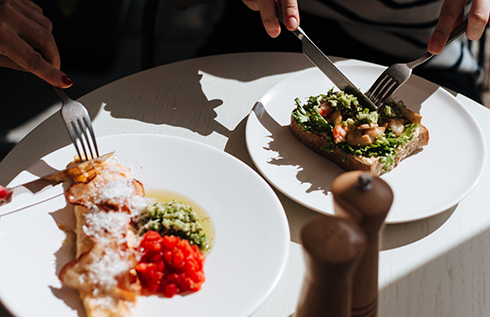
The food dish or container also speaks a lot about the restaurant or eatery. The salad business is no exception to this thought. Tablewares constitute a part of image-boosters for the business.
The salads can be served in different-shaped bowls, paper cups, or even glasses. Businesses should decide the most appropriate type of dish for different salads. A premium-priced salad can be served in a lavish and stylish glass cup, whereas a regular salad can be served in any cutlery. However, the choice of cutlery or dish ultimately depends on your preference.
After choosing the tableware, the setting or arrangement of the dishes is also important. It involves the decision to identify the ideal space for putting the number of dishes. If the table size is small, the dishes will differ directly. The number of dishes being served will also vary accordingly.
Take-out Containers
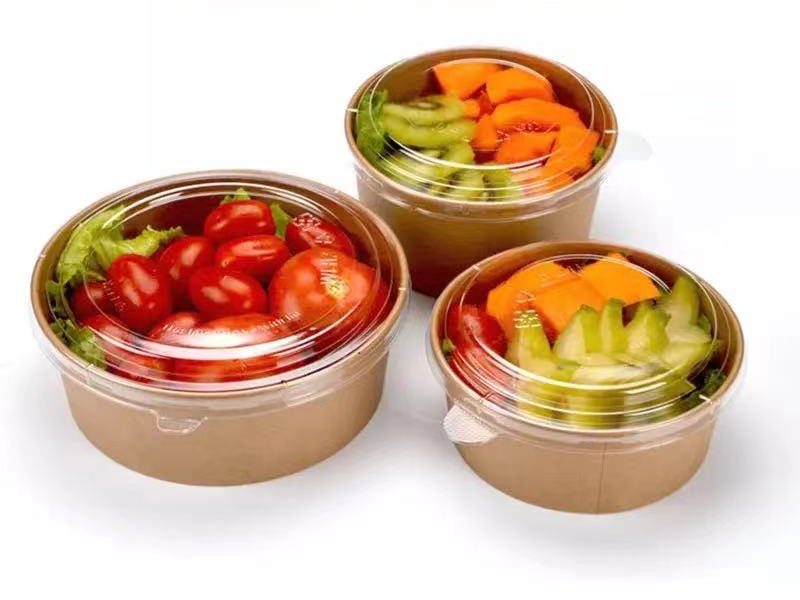
Not every person entering the salad restaurant will eat on the spot. Some will order and pack it for their future consumption. This paves the way for thinking of an attractive salad take-out container. There should be a proper space allocated for take-out orders.
Apart from the space allocation, you should also give the packed orders in long-lasting cutleries. It can be aluminum, plastic, or any other option. The selected take-out containers should be environment-friendly and easy to carry.
A business does not know when the customer will consume the packed item. There are various sauces contained in the salad, which shortens the life of the food when put in specific packaging material. Therefore, it is crucial to design a take-out container with a long shelf life.
How To Sell

The selling process requires you to evaluate certain external factors and then create a business plan for smooth business operations. It relates to the basic business essentials, which are highlighted hereunder.
Know Your Competition
Business threats are dangerous as well as opportunity providers. One of the biggest challenges a business can face is competition. When there are a decent number of established salad businesses, it will be crucial for one to analyze the loopholes of the competitors and plan out different strategies.
The first step is to identify various competitors through various sources like the internet, observation, knowledge, etc. Pick one competitor at a time and analyze their business model and revenue structure.
You should critically evaluate your business menu, ambiance, customer service, location, tactics, serving material & elements like lids, paper, straws, etc. After evaluating all the competitors, rank them according to the business understanding. The final step is to identify the closest competitor having a similar business plan as yours. This identification process should be backed by logic.
Plan & Strategies
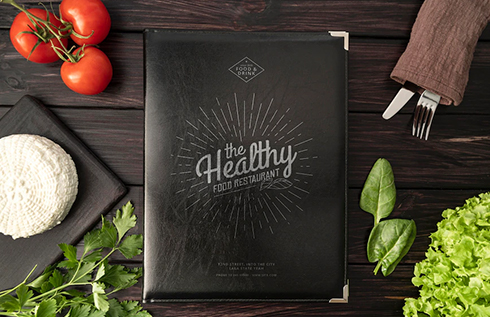
Experts always advise conducting a situation audit or a SWOT analysis to understand the market better. It gives a comprehensive view of the potential threats and opportunities. Based on this analysis, the salad startup should create a plan to tap the opportunities and draft relevant strategies to mitigate the threats.
Businesses should consider the budget and then implement or think of the strategies. These can be launching advertisements, firing employees, etc. A business plan should consist of goals, objectives, sales forecast, profit target, responsibility allocation, in-store designs, etc.
Marketing & Advertisement
Marketing and advertising are optional activities for the salad businesses. For example, when the salad restaurant is opened under a franchise, it will not require to push the brand name to the public.
In the case of an independent salad business, you can select word-of-mouth promotion when you have limited financial resources. If you have a massive budget, you can opt for influencer marketing. You can rope in various influencers or fitness enthusiasts to promote the brand. This way will increase the brand visibility and drive huge profits.
Another effective technique to market the business is to partner or collaborate with a nutritious brand (like organic products, fitness products brand, etc.) and spread a positive message through advertisements or campaigns.
More Tips
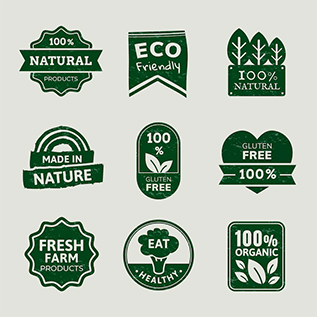
There are many additional tips to achieve success while setting up a salad business. Some of these tips are mentioned in the following points.
Going Green
Going green has been an influential motto of modern-day businesses. Every business is trying to beat its competitors in different ways. Being environmentally friendly is one of these modes of gaining a competitive edge.
Apart from having a competitive advantage, it is also a part of a business’s responsibility towards society. Performing business with minimal wastage has also become a part of CRM (Customer Relationship Management), which is an excellent way of spreading positive messages about an enterprise.
You should advise the waiters to use cutleries that are eco-friendly. The packaging containers should also be easily recycled and reused. Apart from this, you should ensure that you have proper waste disposal techniques. You should place dustbins wherever possible and required.
Upgrade Delivery Service
Delivering the customers is a vital act in the hospitality industry. Your startup should create a comfortable environment for the customers, so they spend more time at the place. You should also regularly upgrade your delivery service to force customers to revisit the salad bar.
Many salad bars also provide home delivery. It helps businesses in reaching out to customers living in inaccessible locations. Moreover, it is an exceptional way of boosting the brand presence. In this scenario also, you should use innovative measures for delivering service.
The Bottom Line
People eating salads and healthy food have increased tremendously over the past few years. They have become more knowledgeable about what and what not to eat. This acts as a critical opportunity for entrepreneurs.
Starting a salad business can be challenging yet rewarding. The detailed overview provided above gives a direction for brainstorming various ideas for launching this business. However, the most crucial element before opening a salad bar is research; and the rest will proceed itself.
After research, another neglected part is packaging. Salads are vulnerable to bad smell and taste. Therefore, it is crucial for businesses to hire packaging solutions from YoonPak who provide packaging products at reasonable rates. You can contact us and ask any queries or problems regarding packaging material for salads in order to enrich customer experience.
Frequently Asked Questions About Starting a Salad Business
Q1: What are the key business models for a salad shop or salad restaurant?
A1: When you’re looking to start your own salad business, you primarily have a few core models to consider. You can open an independent salad store or salad restaurant, giving you full control over your brand and operations. Another popular and effective model is the “build your own salad restaurant” or “make your own salad restaurant,” which offers customers customization options from a wide array of fresh ingredients. Alternatively, you might explore a salad bar franchise, benefiting from an established brand name, proven business model, and built-in marketing support. Each model has its own advantages and considerations regarding initial investment, operational complexity, and growth potential.
Q2: What are the essential steps for setting up a salad bar?
A2: Setting up a salad bar involves several crucial steps. Beyond initial market research and crafting a comprehensive business plan, you’ll need to secure appropriate licensing and permits. Key physical setup involves acquiring the right commercial kitchen equipment, including refrigeration and tools for making salad. Planning your kitchen layout for efficiency and ensuring proper hygiene standards are also vital. Finally, establishing reliable supply chains for fresh produce and developing strong marketing strategies are fundamental to a successful launch.
Q3: What are the most important factors to consider in salad preparation for a commercial business?
A3: For a salad business, several important factors to consider in salad preparation are critical for quality, safety, and customer satisfaction. Firstly, ingredient freshness and quality are paramount – always source the freshest produce. Secondly, hygiene and food safety cannot be overstated; maintain a meticulously clean preparation area and ensure all staff follow strict sanitation protocols. Thirdly, flavor balance and texture variety are key to creating appealing salads; consider the interplay of sweet, savory, acidic, and crunchy elements. Finally, consistency in recipes and portioning ensures customers receive the same high-quality product every time, building trust and repeat business.







